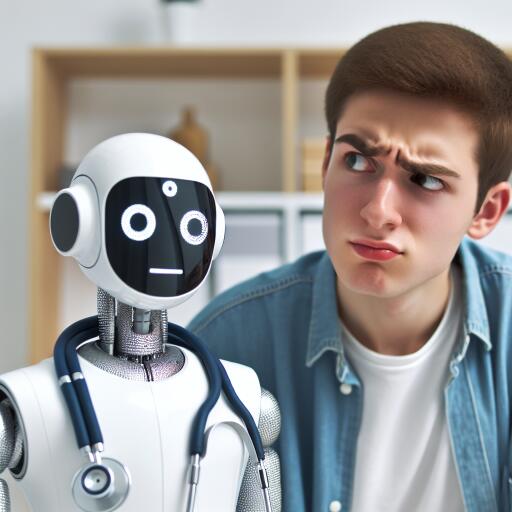Sorry, Dr. GPT: People Just Don’t Trust You
In the fast-evolving domain of artificial intelligence (AI), healthcare stands at the cusp of a paradigm shift. AI’s promise to transform everything from diagnostics to personalized treatment plans is unprecedented. Yet, as these advanced technologies beckon a new dawn in medical care, a pertinent question looms: are patients ready to entrust their health to AI?
A thought-provoking study published in Nature Medicine unveils a stark revelation: when it comes to medical advice, the human touch remains irreplaceable—at least in the eyes of patients. Researchers from the University of Würzburg in Germany unveiled their findings after conducting extensive experiments aimed at discerning public sentiment towards AI-generated medical advice.
The experiments shed light on how participants rated medical advice when they were led to believe it came from varied sources: a human doctor, an AI system, or a blend of both. Despite the advice being identical across the board, the response was astonishingly consistent: advice believed to be from a human doctor was perceived as more trustworthy and empathetic than that attributed to AI, whether standalone or aided by human oversight.
This bias against AI in healthcare, also referred to in the study as “anti-AI bias,” raises intriguing questions about the readiness of society to embrace AI in one of the most sensitive and personal areas of our lives. This is especially compelling considering the strides AI has made in achieving diagnostic accuracies that rival, and sometimes surpass, human doctors. When not privy to the source, some studies have found doctors themselves praising the quality and perceived empathy of AI-generated responses over their human colleagues.
The reluctance to accept AI’s role in healthcare may stem from a variety of factors. One explanation the researchers propose is the inherent “dehumanizing” nature of AI in a field where empathy and personal rapport are highly valued. Another suggestion is the phenomenon of “uniqueness neglect,” where patients might doubt an AI’s ability to consider the intricacies of their individual situations.
Interestingly, the study noted that supplementing AI advice with human oversight did little to improve its perceived value, hinting at deep-seated skepticism. This presents a conundrum, as AI has the potential to significantly enhance healthcare delivery, yet its efficacy could be curtailed by public mistrust.
The reluctance to trust AI could potentially lead to scenarios where patients ignore or are less likely to adhere to critical advice, mistakenly believing it to be inferior due to its artificial origins. This underscores the importance of how medical AI tools are introduced and framed to patients to foster trust and acceptance.
Nonetheless, the study offers a glimmer of optimism. Despite their reservations, participants displayed a keen interest in exploring AI-powered medical platforms. This indicates that while trust in AI for healthcare needs nurturing, the curiosity and openness to these technologies exist.
As AI’s integration into healthcare progresses, bridging the trust gap becomes imperative. Future strategies could involve transparently communicating AI’s role and ensuring human oversight is perceptible and emphasized in patient care decisions. Such approaches might mollify concerns and pave the way for a synergy between AI’s efficiency and the indispensable human element in healthcare.
The journey of integrating AI in healthcare is a testament to the evolving relationship between technology and humanity. It emphasizes the necessity of balancing innovative leaps with the preservation of trust, empathy, and personal connection in the doctor-patient relationship. Embracing AI in healthcare, therefore, is not just about technological adoption but about nurturing this delicate balance to truly revolutionize medical care.










